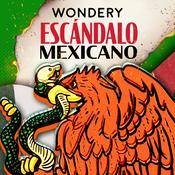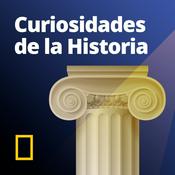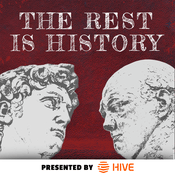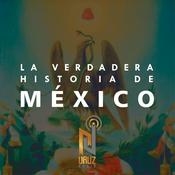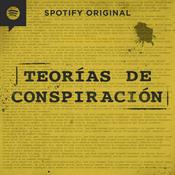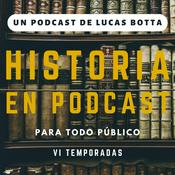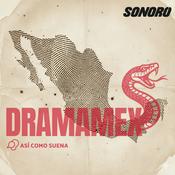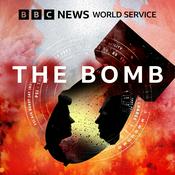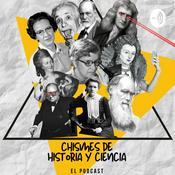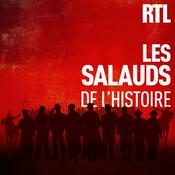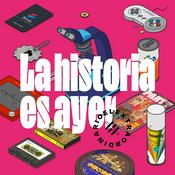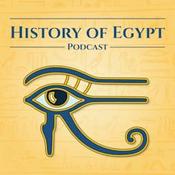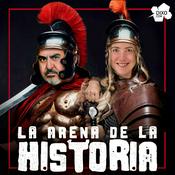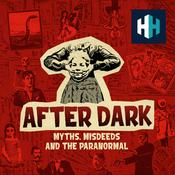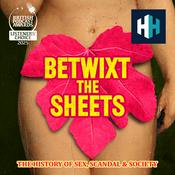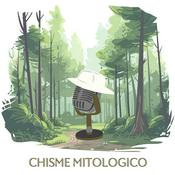132 episodios

The Americas
27/12/2025 | 19 min
The AmericasGreat civilizations had risen and fallen in the Americas before the arrival of the Europeans. In North America, the complex Pueblo societies including the Mogollon, Hohokam, and Anasazi as well as the city at Cahokia had peaked and were largely memories. The Eastern Woodland peoples were thriving, but they were soon overwhelmed as the number of English, French, and Dutch settlers increased. Mesoamerica and South America had also witnessed the rise and fall of cultures. The once-mighty Mayan population centers were largely empty. In 1492, however, the Aztecs in Mexico City were at their peak. Subjugating surrounding tribes and requiring tribute of both humans for sacrifice and goods for consumption, the island city of Tenochtitlán was the hub of an ever-widening commercial center and the equal of any large European city until Cortés destroyed it. Further south in Peru, the Inca linked one of the largest empires in history through the use of roads and disciplined armies. Without the use of the wheel, they cut and fashioned stone to build Machu Picchu high in the Andes before abandoning the city for unknown reasons. Thus, depending on what part of the New World they explored, the Europeans encountered peoples that diverged widely in their cultures, traditions, and numbers. All images referenced in this podcast can be found at https://openstax.org/books/us-history/pages/1-1-the-americas Welcome to A Journey into Human History. This podcast will attempt to tell the whole human story. The content contained in this podcast was produced by OpenStax and is licensed under a Creative Commons Attribution License. Access for free at https://openstax.org/details/books/us-history Podcast produced by Miranda Casturo as a Creative Common Sense production.Become a supporter of this podcast: https://www.spreaker.com/podcast/a-journey-into-human-history--5860966/support.

Ongoing Problems and Solutions
08/11/2024 | 30 min
When the Soviet Union collapsed in the early 1990s, it seemed possible to many in the West that the United States would lead the world into a new era of universal liberal democracy. But in 2001, the September 11 attacks by the terrorist group al-Qaeda prompted the United States to begin wars in Afghanistan and then in Iraq. The mistakes made in Iraq damaged the reputation of the United States and weakened its ability to preserve stability in the world. Its intervention in Iraq also spurred the growth of the Islamic State, responsible for violent attacks in Iraq, Syria, and Africa. Violence, civil war, and persecution have led large numbers of refugees from the Middle East and Africa to cross the Mediterranean to Europe. Their arrival has provoked some resistance, and a number of ultranationalist groups have sprung up in the United States and Europe. The migrant crisis at the U.S.-Mexico border is partly the result of violence and instability in a number of Latin American countries, such as civil wars in El Salvador and Guatemala. Violence and human rights abuses have plagued Sub-Saharan Africa for decades. Many occur in the Global South, and critics have connected the economic problems there to the region’s history of imperial exploitation by countries in the Global North. One of these problems is the resource curse, or the difficulty of responding to domestic needs faced by resource-rich countries. All images referenced in this podcast can be found at https://openstax.org/books/world-history-volume-2/pages/15-4-ongoing-problems-and-solutions Welcome to A Journey into Human History. This podcast will attempt to tell the whole human story. The content contained in this podcast was produced by OpenStax and is licensed under a Creative Commons Attribution License. Access for free at https://openstax.org/books/world-history-volume-2/pages/1-introduction Podcast produced by Miranda Casturo as a Creative Common Sense production.Become a supporter of this podcast: https://www.spreaker.com/podcast/a-journey-into-human-history--5860966/support.

Science and Technology for Today’s World
06/11/2024 | 23 min
By the 1990s, computers had become commonplace in developed countries, though fears about their potential impact on privacy grew with the rise of the internet and social media. Easy access to social media over smartphones helped young protestors in Tunisia and Egypt organize to challenge their governments. The movement spread across the Middle East in the form of the Arab Spring. Some nations such as China have since blocked the use of many social media platforms. Medical scientists have made great strides in curing and preventing diseases. Vaccines eliminated smallpox around the world and came close to eliminating polio. But new illnesses arose, including Ebola virus and HIV/AIDS. Since it was identified in the 1980s, treatments have emerged to make it a manageable disease for many rather than a lethal one, though in the developing world, it is still a huge problem. The most recent challenge to world health, the COVID-19 pandemic that began in December 2019, demonstrates how both globalization and technological developments affect life in the twenty-first century. All images referenced in this podcast can be found at https://openstax.org/books/world-history-volume-2/pages/15-3-science-and-technology-for-todays-world Welcome to A Journey into Human History. This podcast will attempt to tell the whole human story. The content contained in this podcast was produced by OpenStax and is licensed under a Creative Commons Attribution License. Access for free at https://openstax.org/books/world-history-volume-2/pages/1-introduction Podcast produced by Miranda Casturo as a Creative Common Sense production.Become a supporter of this podcast: https://www.spreaker.com/podcast/a-journey-into-human-history--5860966/support.

Debates about the Environment
04/11/2024 | 17 min
In the 1950s and 1960s, some in developed countries began responding openly to the environmental problems they saw around them, including those caused by the Green Revolution. Scientists like Rachel Carson, author of Silent Spring, gave legitimacy to these concerns, and many people became environmental activists working to promote change. They and the environmental groups they created spoke of the need to address global warming and climate change, the dangers of nuclear energy, deforestation, the ozone hole, and many other problems. These efforts were occasionally met with resistance, not just from those who survived by exploiting natural resources in their own developing countries, but also from workers, like loggers and others, in developed countries. By the 1980s, international groups like the United Nations were also calling for action. Specific measures like the Montreal Protocol were followed by the UN’s ambitious 2015 Paris Agreement to limit warming. But achieving international agreement about how best to handle the problem of climate change remains a struggle. All images referenced in this podcast can be found at https://openstax.org/books/world-history-volume-2/pages/15-2-debates-about-the-environment Welcome to A Journey into Human History. This podcast will attempt to tell the whole human story. The content contained in this podcast was produced by OpenStax and is licensed under a Creative Commons Attribution License. Access for free at https://openstax.org/books/world-history-volume-2/pages/1-introduction Podcast produced by Miranda Casturo as a Creative Common Sense production.Become a supporter of this podcast: https://www.spreaker.com/podcast/a-journey-into-human-history--5860966/support.

A Global Economy
01/11/2024 | 38 min
In the aftermath of World War II, countries began to open trade and communications around the world. In Europe, the EEC or Common Market eventually grew into the EU. In Asia, countries worked together to create their own trading blocs like ASEAN and APEC. Canada, Mexico, and the United States signed the NAFTA treaty, later replaced by USMCA. All these trading blocs and organizations have made it easier for MNCs to operate around the world, leading to a rise in the standard of living for many developing countries. But MNCs are often criticized for their profit-driven approach, which can create lasting problems in developing countries, sometimes made worse by efforts to encourage these nations to privatize their public utilities. The poorest groups are also most commonly exploited by MNCs that contract with large factories or sweatshops in developing countries. Wealthy corporations like Apple and Nike have frequently been criticized for profiting from the labor of poorly paid workers in unsafe environments in places like China and Bangladesh. All images referenced in this podcast can be found at https://openstax.org/books/world-history-volume-2/pages/15-1-a-global-economy Welcome to A Journey into Human History. This podcast will attempt to tell the whole human story. The content contained in this podcast was produced by OpenStax and is licensed under a Creative Commons Attribution License. Access for free at https://openstax.org/books/world-history-volume-2/pages/1-introduction Podcast produced by Miranda Casturo as a Creative Common Sense production.Become a supporter of this podcast: https://www.spreaker.com/podcast/a-journey-into-human-history--5860966/support.
Más podcasts de Historia
Podcasts a la moda de Historia
Acerca de A Journey into Human History
Escucha A Journey into Human History, Escándalo Mexicano y muchos más podcasts de todo el mundo con la aplicación de radio.net
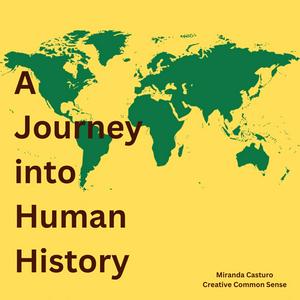
Descarga la app gratuita: radio.net
- Añadir radios y podcasts a favoritos
- Transmisión por Wi-Fi y Bluetooth
- Carplay & Android Auto compatible
- Muchas otras funciones de la app
Descarga la app gratuita: radio.net
- Añadir radios y podcasts a favoritos
- Transmisión por Wi-Fi y Bluetooth
- Carplay & Android Auto compatible
- Muchas otras funciones de la app


A Journey into Human History
Descarga la app,
Escucha.
